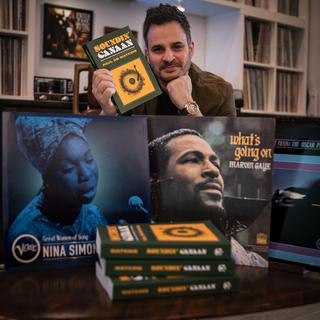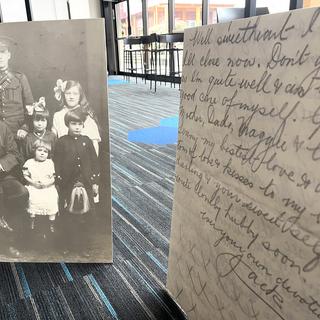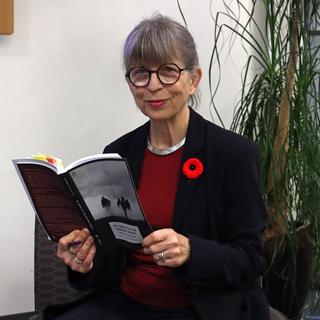Annual lecture series delves into a variety of topics including respectful relations between humans and plants, understanding women’s pain and examining London’s last Frost Fair.
The show will go on for Vancouver Island University’s (VIU’s) popular Arts and Humanities Colloquium Series this fall.
“The Colloquium committee is excited to be able to continue the Series in this academic year,” says Dr. Cathryn Spence, committee chair. “We have a great lineup of amazing lectures, and we are thrilled to be able to use Zoom technology to deliver these. Not only does this allow us to continue showcasing the fascinating and valuable research being carried out by members of our faculty, but it also allows us to gather together virtually and help maintain our connection between VIU and the wider community.”
To receive a Zoom presentation invitation, please email Spence at Cathryn.Spence@viu.ca. All lectures are free to attend.
The series kicks off on Friday, September 25 with Making Kin with Plants: The Picture Books of Elsa Beskow, presented by Terri Doughty, a VIU English Professor. Doughty will discuss how humans view plants as lower life forms and how “fostering more respectful relations between humans and plants requires a cognitive shift in humans to reject species hierarchies and recognize plants and humans are interconnected in webs of kinship.”
Doughty will use Swedish artist Elsa Beskow’s work to illustrate how children’s picture books can contribute to this type of shift in perspectives. Beskow’s work blurs the boundaries between humans and plants and often represents plants as intelligent beings living in complex communities.
“I started this project because I was interested in the role Beskow’s work has played in establishing a strong human-nature culture as a key element of Swedish identity, but I’ve become even more interested in her treatment of the plant-human relationship, which is less studied than the human-animal relationship,” says Doughty. “Plants can live without humans, but it would be much harder for humans to live without plants. Amidst our climate crisis, we need to learn to live co-operatively on this planet of finite resources.”
On October 23, Dr. Whitney Wood, VIU’s Canada Research Chair in the Historical Dimensions of Women’s Health, presents Understanding Women’s Pain in Canadian Medical History. Wood will discuss how pain is a universal experience but how individuals experience and express their pain is historically and culturally specific. She’ll draw on various sources to demonstrate that “nineteenth and twentieth-century ideas about the varying levels of pain women experienced in giving birth were a product of mounting gender, class and racial anxieties during a key period of social and cultural change.”
Wood says these ideas continue to shape women’s encounters with the Canadian health-care system today.
On November 27, Dr. Sarah Crover, a VIU English Professor, presents ‘Behold the Wonder of this Present Age, A Famous River now Becomes a Stage’: Pageantry on the Frozen Thames. Crover will draw from the sci-fi series Doctor Who, which dedicates an episode in Season 10 to London’s last Frost Fair in 1814, to illustrate the “danger and beauty of the frozen Thames.” When the London Thames River froze over from the sixteenth through eighteenth centuries, elaborate frost fairs were set up.
“These fairs had something for everyone, from personalized postcards to bawdy houses,” she says. “Alternately horrified and gleeful, early modern accounts reflect Londoners’ hopes and fears about who they were and where they fit in the larger world.”
The Colloquium Series began in 2009 with the aim of creating reflective and intellectually engaging presentations that demonstrate how important the arts and humanities are to understanding today’s world. Learn more on the Colloquium Series website.
-30-
MEDIA CONTACT:
Rachel Stern, Communications Officer, Vancouver Island University
C: 250.618.0373 l E: Rachel.Stern@viu.ca | T: @VIUNews





